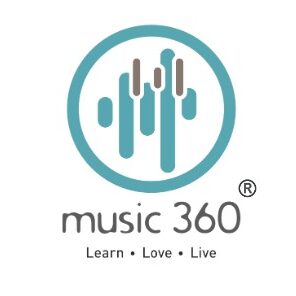Estimated time for reading: 4 minutes
Table of contents
- Introduction
- What’s Music Therapy?
- The 4 types of music therapy for adults.
- Practicing Music therapy at home and their benefits for adults.
- A few proven benefits of music therapy.
- What does research show about music therapy for adults.
- A few tools and activities that music therapists use for adults.
- 3 music therapy activities and exercises for adults.
- Conclusion
Introduction
Music has a unique ability to heal and uplift, making it a valuable tool in the journey towards wellness for countless individuals, whether it’s soothing the mind, easing physical discomfort, or fostering an emotional expression.
Imagine the benefits of music therapy for adults sitting in a bustling café, feeling overwhelmed by the day’s stresses.
Suddenly a familiar melody whiffs past, and lo! You are transported to a place of comfort and tranquillity. This is the power of music therapy for the Adults. These are moments of respite and rejuvenation in the hustle and bustle of life.
What’s music therapy?
Music therapy is the use of music by a qualified music therapist to address a person’s physical, emotional, cognitive or social needs. Music therapists design treatment sessions based on a person’s particular needs. Treatment options include creating, singing and mooing to and or listening to music, communicating and understanding. Research shows that music therapy may help to relax, explore your emotions and your cognitive or social needs.
The 4 types of music therapy for adults are:-
- Compositional music therapy
- Improvisational music therapy
- Receptive music therapy
- Re-creative music therapy
Although music therapy is not a cure for any mental condition, it can be an effective and enjoyable tool for reducing the symptoms of numerous conditions, including depression and anxiety.
Practicing music therapy at home and their benefits for adults
- Writing and singing songs.
- Improvising on songs and music pieces.
- Playing a musical instrument.
- Using musical devices and technology.
- Listening to music with and without visual imagery.
- Exchanging information through music.
Music therapy includes listening, communicating and understanding. Music therapy stands undisputed as a heal for negative stress and burden. Music therapy is an expressive art therapy.
A few proven benefits of Music therapy

- Music therapy reduces depression and other symptoms in the elderly people.
- Music therapy reduces anxiety and physical effects of stress.
- Music therapy improves healing.
- Music therapy manages Parkinson’s and Alzheimer’s disease.
- Music therapy helps the patient to relax completely.
What does the Research show about music therapy for adults?
- Music based interventions have been evaluated for their effects on anxiety on the variety of disease conditions and health care settings most studies have had promising results.
- 26 studies involving a total of 2,051 participants found that listening for recorded music significantly reduced anxiety of people.
- Some evidence is also there to show music-based interventions may be helpful for shortness of breath, anxiety and sleep quality in adults.
- Limited evidence suggests that music-based interventions may improve emotional well-being, behavioural challenges and quality of life.
- There is some evidence that adding music-based interventions to usual treatment may improve depressive symptoms.
A few tools and activities that music therapists use for adults.
- A musical instrument: Clients love to hear their therapist play instrument like guitar, ukulele, keyboard or harp. It brightens up a session.
- A speaker: Playing music on a good speaker is ideal for group therapy for adults; to make it audible and in encouraging.
- Paper and pen: This is recording and manging feedback, and for song writing and sentence completing activities.
- A Drum: Drumming is an excellent music tool for light hearted fun, positive addiction and unhindered engagement for adults.
3 music therapy activities and exercises for adults
Music therapy research is at its peak and many effective musical interventions and strategies are uniquely designed. Here is a list of popular music therapy group activities for adults.
- MUSIC BINGO: It is a cognitive music activity that improves memory and reality orientation. This is a preferred method for adult intervention and is often used in association with other therapies.
- MUSIC RELAXATION: This is a well-known music therapy for adults for mindfulness and meditation. This is mainly used to induce a calm state where the mind can relax and the muscles loosen up to remove pent-up stress.
- MUSIC SELECTION: This is for emotional disturbances and self-regulation. Self-selected pieces of music evoke emotions and bring back memories which makes one feel nice and induces self-awareness and acceptance.
Conclusion
In this journey of life, music therapy serves as a healing melody for the adults in the realm of their life; transforming anguish into harmony and despair into serenity for adults. The benefits of music therapy is a bridge to emotional liberation and rejuvenation.
# music360
# music Heals
# sound therapy
# emotional wellness
# harmony within

